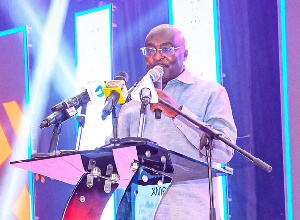Business News of Friday, 19 July 2019
Source: thebftonline.com
Reduce taxes on LPG to increase usage - LPG Association
Mr. Gabriel Kumi, Vice Chairman of the Liquefied Petroleum Gas (LPG) Association, has appealed for government to remove all taxes on LPG to ensure a lot of consumption by 2030.
He noted that LPG is a product with elastic demand; if the price is less, consumption will go up; as currently the average cylinder is GH¢80.
He pointed out that some individuals who want to use LPG cannot afford it. “Some buy between GH¢30 and GH¢50 instead of the GH¢80 for a 17kg cylinder, because that is what they can afford.”
According to him, the consumption of gas has reduced; between 2016 to date, the figure has become stagnant. “We need to improve the use of LPG to save the country; and to make that possible, the association will not relent in its effort to put pressure on government so that taxes on LPG will be removed,” he added.
Mr. Kumi was speaking at a stakeholder engagement on Cylinder Recirculation Model (CRM) in Takoradi, which attracted a lot of market women, teachers’ associations, chiefs and queen mothers, and women groups among others.
The event was held under the theme ‘CRM: creating more jobs, securing our safety’, was to educate the public on the Cylinder Recirculation Model (CRM) and solicit support of all stakeholders.
The National Liquefied Petroleum Gas (LPG) Promotion Policy seeks to provide direction on marketing and distribution of LPG in a safe and efficient manner, and facilitate an increase in access to LPG nationwide.
Mr. Alhassan Tampuli, Chief Executive Officer (CEO) of the National Petroleum Authority (NPA), explained that the policy’s goal is to ensure at least 50% of Ghanaians have access to safe, clean and environmentally-friendly LPG for increased domestic, commercial and industrial usage by 2030.
He said the policy seeks to develop a market-driven structure to ensure safety, increased access and adoption of LPG, and to ensure sustainability of supply under the new market structure.
Also, he said, it is to enhance the capacity of existing regulatory institutions in order to meet the regulatory requirements of the new market structure, as well as ensure local content and participation in the LPG sub-sector in compliance with the downstream Local Content Policy.
Again, he said it is to ensure the existence of robust and standard health, safety and environmental practices in the production, marketing and consumption of LPG.
“Direct job-creation is estimated to be over 4,500 in relation to new jobs under actors of the new value chain and door-to-door delivery service. This does not affect current jobs of LPG Bulk Transporters, LPG Bulk Distribution Companies, and LPG Bulk Storage companies,” he said.
Mr. Tampuli reiterated that the CRM of LPG distribution will be implemented fully. The relevant licences will be issued and safety protocols keenly observed to ensure safety for the good people of Ghana, while increasing access to LPG for domestic, commercial and industrial use from the current 25% level to 50% by 2030.
“We have had a number of consultations with Members of the Council of State, Members of the National House of Chiefs, the Asantehene, Parliamentary Select Committee on Mines and Energy, Regional Houses of Chiefs, residents of Nima and Kotobabi, the people of Greater Accra Region, and the media in Volta, Eastern, Northern and Brong-Ahafo Regions,” he said.
He added: “We will continue our efforts to ensure that we have more engagements in other regions. We have earmarked a lot of programmes for implementing the CRM, some of which are: risk assessment of LPG facilities in 66 second cycle schools in the country; and converting high risk stations into cylinder distribution or exchange points”.
Others he mentioned are compliance-monitoring of all assessed LPG refilling outlets, second cycle school facilities and selected facilities (TOR, TFC, GNGC, Quantum terminal, and Tema Oil Jetty) in the value chain; as well as pilot phase implementation of CRM at Obuasi in the Ashanti Region and other selected regions, among others.
“The issue of safety has been high on the agenda of President Nana Akufo-Addo’s government, and this has culminated in introduction and implementation of the Cylinder Recirculation Model for LPG.”
Kwabena Okyere Darko-Mensah, Western Region Minister, in an address read for him, urged all to ensure safety at all times and uphold safety rules in dealing with petroleum products.











